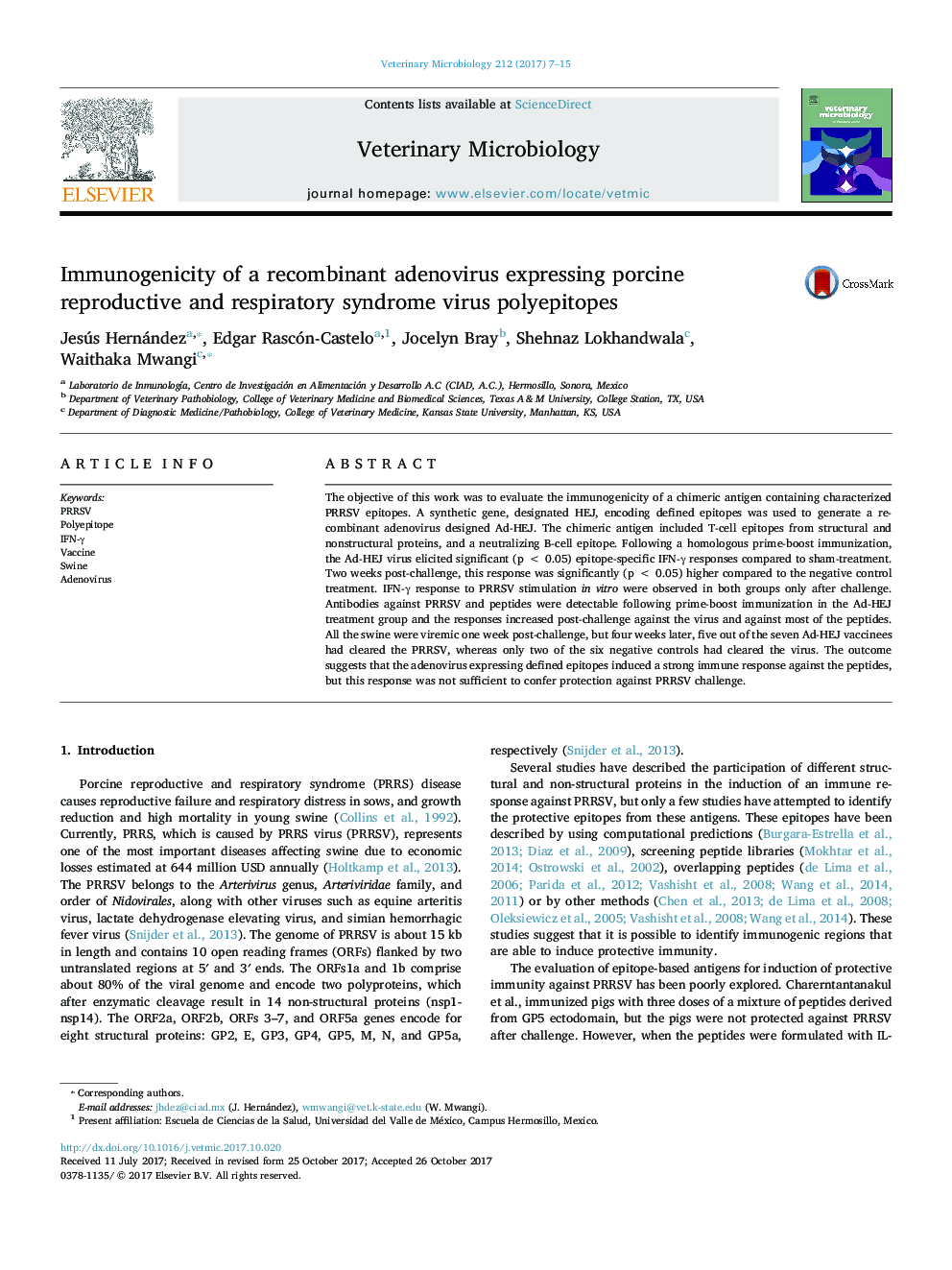| Article ID | Journal | Published Year | Pages | File Type |
|---|---|---|---|---|
| 8505693 | Veterinary Microbiology | 2017 | 9 Pages |
Abstract
The objective of this work was to evaluate the immunogenicity of a chimeric antigen containing characterized PRRSV epitopes. A synthetic gene, designated HEJ, encoding defined epitopes was used to generate a recombinant adenovirus designed Ad-HEJ. The chimeric antigen included T-cell epitopes from structural and nonstructural proteins, and a neutralizing B-cell epitope. Following a homologous prime-boost immunization, the Ad-HEJ virus elicited significant (p < 0.05) epitope-specific IFN-γ responses compared to sham-treatment. Two weeks post-challenge, this response was significantly (p < 0.05) higher compared to the negative control treatment. IFN-γ response to PRRSV stimulation in vitro were observed in both groups only after challenge. Antibodies against PRRSV and peptides were detectable following prime-boost immunization in the Ad-HEJ treatment group and the responses increased post-challenge against the virus and against most of the peptides. All the swine were viremic one week post-challenge, but four weeks later, five out of the seven Ad-HEJ vaccinees had cleared the PRRSV, whereas only two of the six negative controls had cleared the virus. The outcome suggests that the adenovirus expressing defined epitopes induced a strong immune response against the peptides, but this response was not sufficient to confer protection against PRRSV challenge.
Related Topics
Life Sciences
Agricultural and Biological Sciences
Animal Science and Zoology
Authors
Jesús Hernández, Edgar Rascón-Castelo, Jocelyn Bray, Shehnaz Lokhandwala, Waithaka Mwangi,
